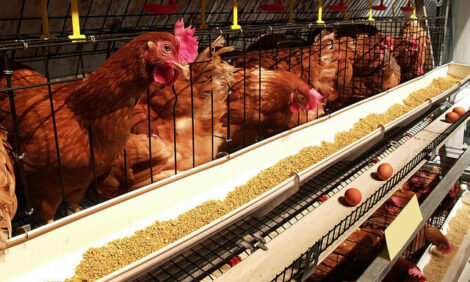



Urgent Need to Find Solutions in Farm Trade Talks
GLOBAL - A plea has been sent out to nations in the World Trade Organization to step up efforts to their differences on key issues blocking progress in the Doha Round farm trade talks.John Adank, the New Zealand ambassador chairing the negotiations, said there was an “urgent need to move from repeating positions to working for solutions”.
"There have been signs that a number of delegations are trying to do this, and I encourage them – and everyone else – resolve to continue," he said.
Ambassador Adank warned that members were "a long way" from achieving an agreement by July on the agriculture chapter of a work programme for concluding the Doha Round talks.
"I have to be frank with you: my assessment today is a sombre one," Ambassador Adank said.
"We are a long way from where we should be given the July deadline. In key areas we are, as of yet, far from convergence on certain threshold issues."
"This in turn inhibits progress on other issues," he continued.
"The intensive process in which we have been engaged has still not seen delegations move from entrenched positions or find acceptable ways around them. Doing so is the urgent challenge that is still ahead of us."
The threshold issues set out by the chairman include, under the domestic support heading, possible spending caps on overall trade-distorting support (OTDS) and the coverage and extent of any reductions in existing limits on de minimis support; and under the market access heading, the overall approach to be taken on tariff reductions.
Ambassador Adank said that in Domestic Support it had become clear in the consultations that the nature and extent of disciplines on the OTDS – Overall Trade-Distorting Support – is likely to be a key determinant of the possible outcomes across this pillar as a whole.
“The core of the issue is whether numerical OTDS limits should apply to all Members, with appropriate Special and Differential treatment, or whether, as in Rev. 4, there should be an exemption for Recently-Acceded Members or RAMs,” he said.
“This question arouses strongly divergent views.
“Efforts have been made to try to find a way to reconcile the opposing positions, for example by encouraging parties to look for, or offer up, compensatory adjustments elsewhere, but so far no convergence is in sight.
“There is a strong view on the part of a large number of delegations that efforts to resolve these issues must continue given the consequences if that proves impossible.”
The question of special safeguards also remains a difficult issue to resolve, the chairman added.
WTO members have set July 2015 as the target for agreeing on a work programme for concluding the Doha Round talks.
Separately, members have agreed to try to seek a permanent solution on the issue of public stockholding for food security purposes by the end of December 2015.
In conjunction with the efforts of the various Doha Round negotiating chairmen, Director-General Roberto Azevêdo has also organised meetings of member ambassadors on the Round as a whole to drive the talks forward.








